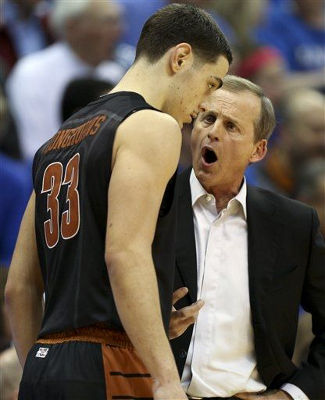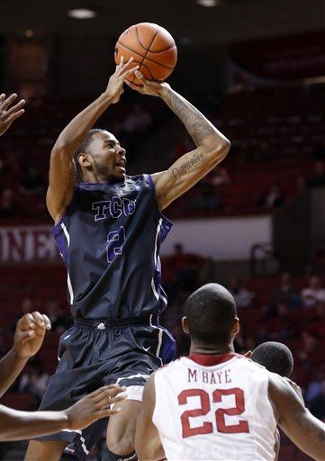Texas Longhorns (11-14 overall, 3-9 Big 12) at TCU Horned Frogs (10-15, 1-11)
Meyer Coliseum | Fort Worth, TX | Tip: 7 P.M. | TV: Big 12 Network (Affiliate List)/ESPN3.com
LRT Consecutive Game #246
If there’s one thing the Longhorns can be thankful for this season, it’s that the Big 12 schedule-makers seem to have a bit of compassion. For the second time this year, Texas will get a chance to bounce back from an uninspired, embarrassing defeat by playing the worst team in the Big 12.
On February 2nd, the Longhorns blew out TCU by a 60-43 count, just four days after being waxed by 26 in Manhattan by Kansas State. Tonight, the Longhorns are looking for another bounce-back win against that same TCU team, three days after getting smoked at Kansas, again by 26 points.

Rick Barnes is still looking for answers this season
(Photo credit: Ed Zurga/Associated Press) 
Connell Crossland has come on strong in Big 12 play
(Photo credit: Sue Ogrocki/Associated Press) |










